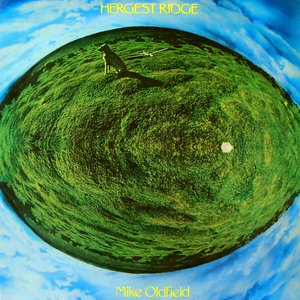Published on Aug 11, 1998
Mike Oldfield has been recording music now for about 25 years,
but he is still known in America for only one work:
Tubular Bells. Its inclusion on the soundtrack for
The Exorcist assured Oldfield some level of fame in the
States, but most of the rest of his body of work has been
criminally ignored.
In England, they know a good thing when they hear it. When
Oldfield’s second album
Hergest Ridge came out in 1974, it knocked
Tubular Bells off the top of the charts. And people wonder
why I’m fond of Britain.
Oldfield was faced with the unenviable task of repeating the
success he had with
Tubular Bells without repeating himself. How does one top a
monumental piece of work – ironically, one that was rejected by
almost every single record label?
For Oldfield, the solution was rather simple: keep the concept
of one song on the album, but make the overall feel of the piece
more gentle, as if you can feel the spring breezes while looking
over the countryside on a cliff. Not nearly as threatening as
Tubular Bells was,
Hergest Ridge is a more approachable piece of music in many
senses.
You can tell this is a special piece of music from the opening
moments of the first movement. The friendlier, more relaxed
atmosphere of the music seems to pre-date any of the New Age that
came to pass in the ’80s. In fact,
Hergest Ridge is a very relaxing disc to listen to, and is
one I’ve occasionally turned to in order to relieve the stresses of
the day.
Also more noticeable on this album is a smoother transition from
concept to concept on the part of Oldfield. While
Tubular Bells, a great piece of work in my mind, seemed a
little choppy,
Hergest Ridge appears to be seamless. It is almost as if
Oldfield learned how to create such monumental pieces from his
whole
Tubular Bells experience, and used
Hergest Ridge as a refinement of his skills.
Complaints? At times, the atmosphere on this album seems a
little too relaxed. As much as I like this album, I often found
myself wishing for a little more of an edge at times, if only to
balance the calm demeanor of the heart of the piece. And as much as
Oldfield tries not to mimic ideas from
Tubular Bells, a bass solo around the halfway portion of the
piece almost feels like it is a copy of the prelude to the “Master
Of Ceremonies” portion at the end of part one of
Tubular Bells. (To Oldfield’s credit, that’s where the
mimicing stops, and the bass part here takes on its own unique
timbre.)
Hergest Ridge is not an album you’ll easily find, but it is
most definitely worth the search. If you liked
Tubular Bells, odds are you’re going to enjoy
Hergest Ridge just as much.
